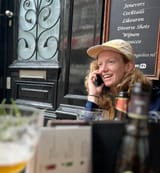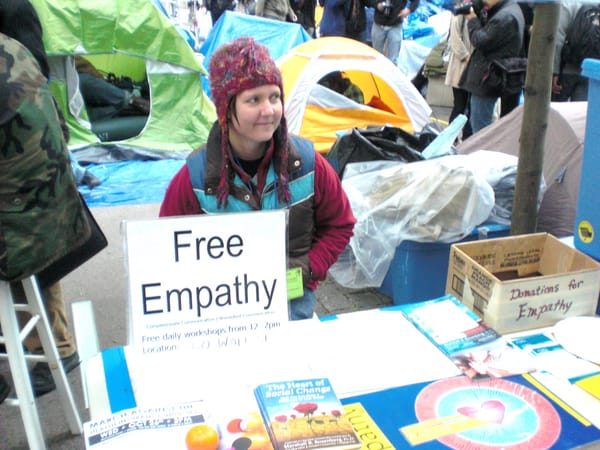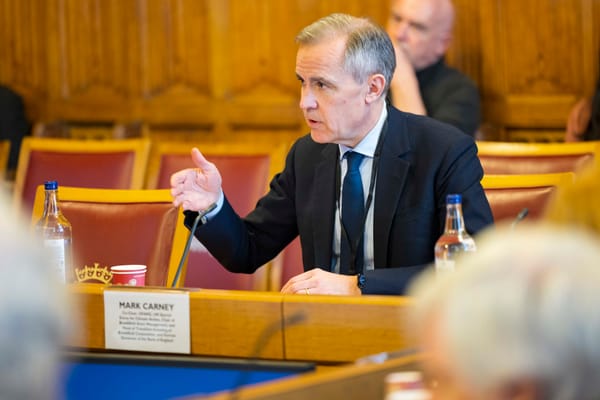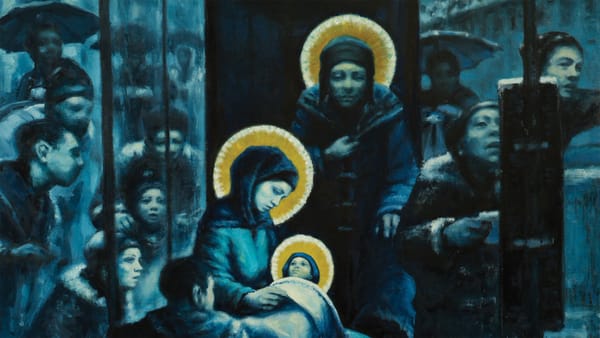How we launched Speak Up mattered – here’s why
Attention to detail is critical if we want to be heard above the noise of our dysfunctional media.
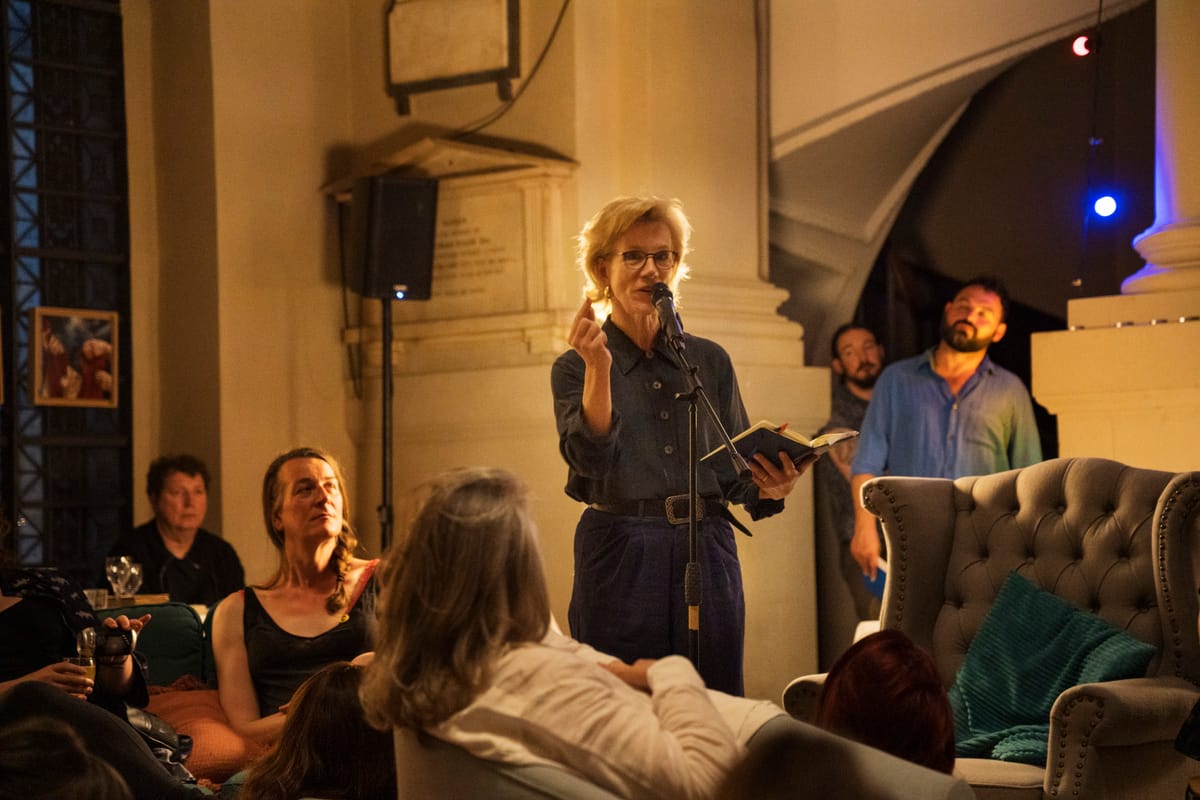
A few weeks ago I wrote about why we started Speak Up, a public service speaker agency joining the dots between our greatest challenges.
Last Wednesday we launched Speak Up into the world, to a lot of positive responses. Drew Benvie, the CEO of social media agency Battenhall, kindly said: “Every speaking event should try something different like Speak Up did last night so imperiously.”
But I also wanted to reflect on how we launched Speak Up, to share the model of our work – “trying something different” as Drew says. At Speak Up and Absurd Intelligence – and of course we’re not the first to think this – we believe the ways in which we operate (the how we do stuff) is critical to breaking through the noise and dysfunction of our media and information spaces.
So, how could we launch a speaker agency differently so that it shows people (not ‘audiences’), from journalists to funders to supporters to potential speakers – that, to quote our bigger mission – we can and will build a better world. Below, we’re sharing the decisions we made that we feel were critical in the tone, feel, and look of the launch. The details matter.
The Venue
We knew we wanted the event to be audacious and inviting, to hold both surprise and awe. A project with such ambition needed to be birthed in an unexpected manner, in a place steeped in history, a space of brave storytelling.
St George’s Bloomsbury is such a place.
Consecrated in St Giles’s infamous Rookery in 1730, it is the sixth and last of Nicholas Hawksmoor’s churches. While the slums depicted in Hogarth’s Gin Lane (spot St Georges’s spire!) are long gone, this majestic building still hides in plain sight, revealing its grandeur unexpectedly.
Long a friend to those who stand up for themselves and each other, St George’s today houses the homeless at the weekends, and has been a solid ally to climate protesters in recent years, allowing tired activists a place to rest when action on the streets got tough. In 1913 it held the memorial service for Suffragette Emily Davidson (who threw herself under the King’s horse) when no other church would have her. In the Second Italo-Ethiopian War St George’s stood in solidarity with the Ethiopians when Mussolini’s forces deployed chemical weapons. A subsequent memorial service in 1937, attended by Haile Selassie, has turned the church into a place of modern pilgrimage for Rastafarians.
The story of Britain is woven into its fabric. Named after England’s patron saint (and the only church topped by a monarch) a Lion and Unicorn are frozen in battle at the base of the ziggurat spire, a reference to the unification of England (the lion) and Scotland (the unicorn), but in our preferred parlance evoking Orwell’s brilliant essay of the same name, an epic rant about the state of Britain’s unpreparedness in the face of World War II.
The Speakers
The idea was to showcase the range of great speakers we had already in our ranks while manifesting the power of using story to join the dots on our greatest challenges. We wanted to keep things light and fun while also not being afraid to have tough conversations that challenge and spark discussion.
We produced an order of service designed to keep people on their toes with elements of the unexpected interspersed amongst the planned.
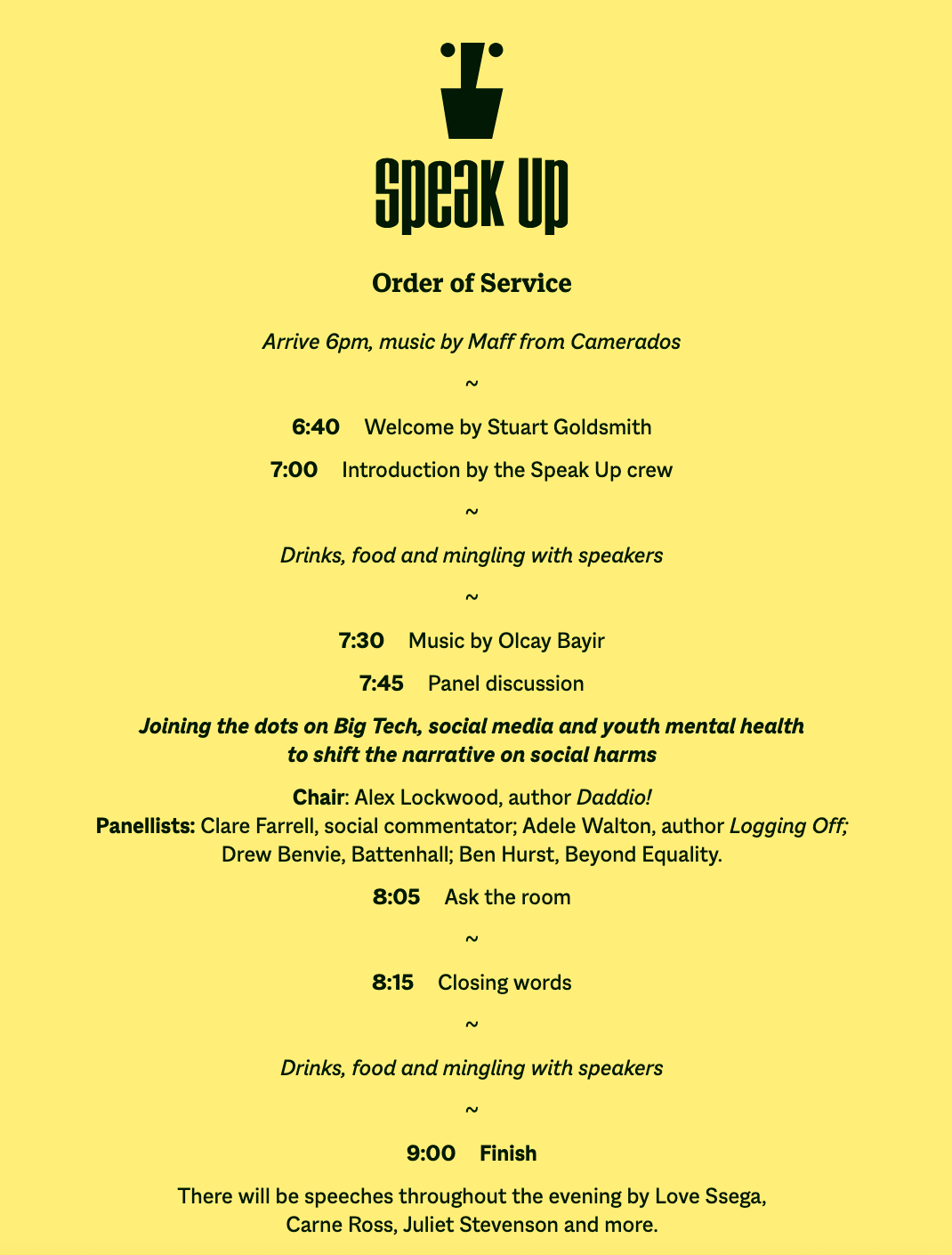
From Stuart Goldsmith’s brilliant opening climate comedy set, to Kurdish singer songwriter Olcay Bayir’s moving performance, to a panel on big tech, social harms and what we can do about it, with moving Speak Up speakers Adele Walton and Clare Farrell plus friends from our wider network (Drew Benvie from Battenhall and Ben Hurst from the Adolescence Campaign) – we weaved together a story that said we all have a part to tell and that our issues are interconnected, not isolated.
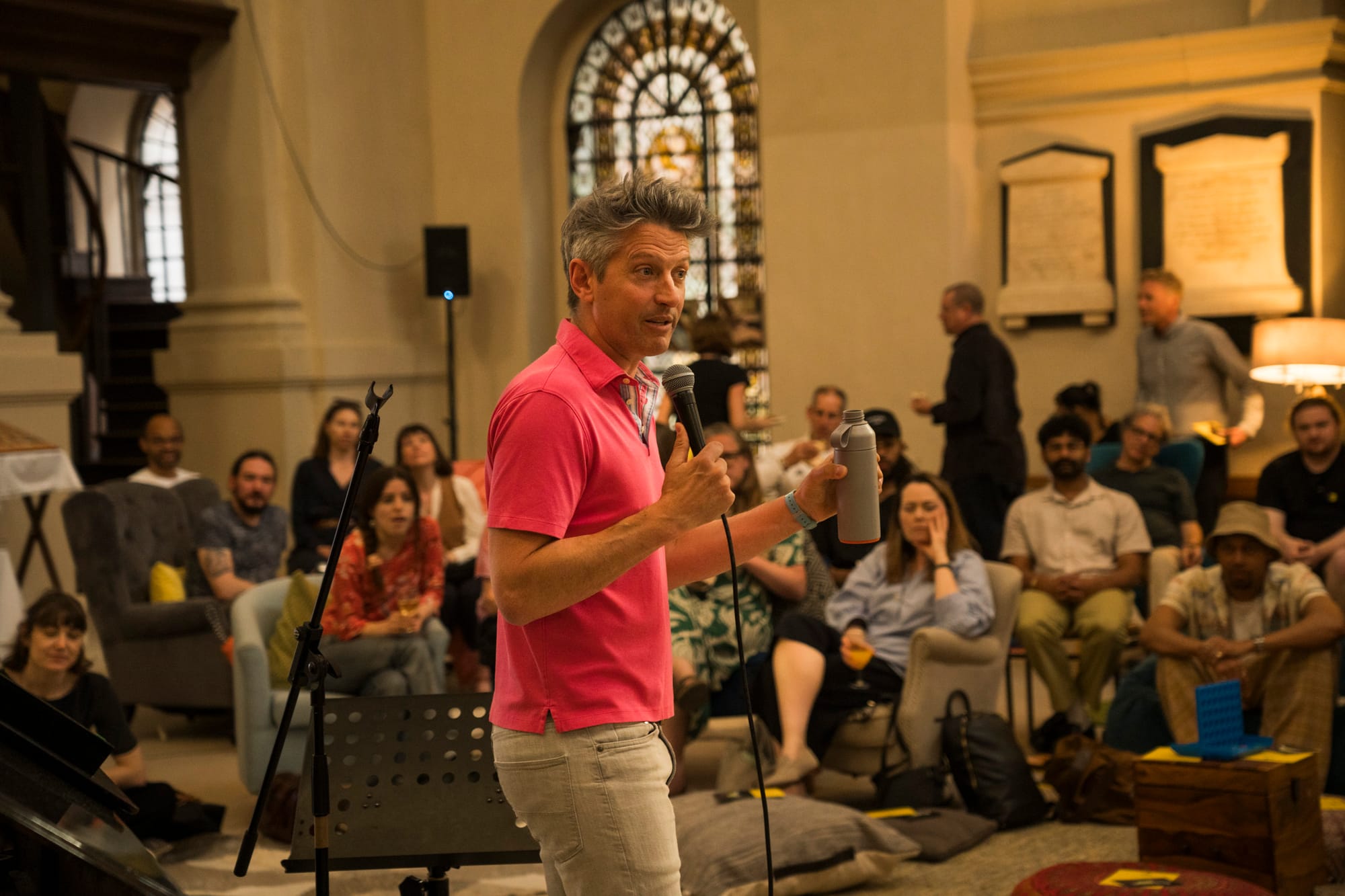
I hope this showed guests why we’re a different kind of agency: one that works collaboratively with our speakers on a shared narrative to recapture the collective imagination and shift the narrative.
Dramatising the delivery
We worked with (the amazing) Josephine Burton from DASH Arts to bring the space to life and choreograph the evening in a way that would pull people’s attention to different spots around the venue, making the most of the impressive acoustics. Our speakers popped up in unexpected places:
- Nelly Ben Heyoun from the balcony surprising everyone with tales about decolonising outer space
- Love Ssega in the pulpit preaching about air pollution
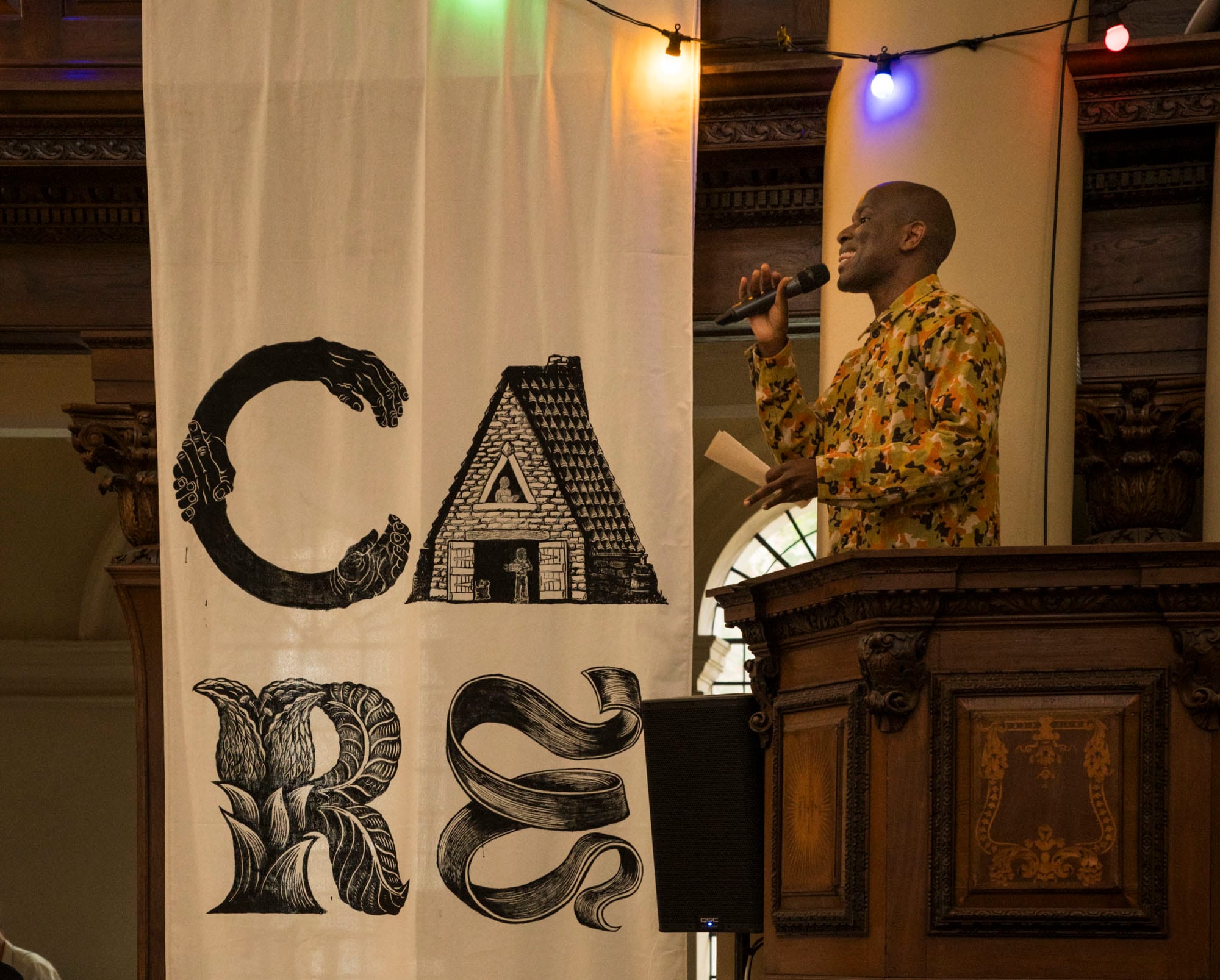
- Carne Ross amongst the crowd talking diplomacy and the power of speaking out
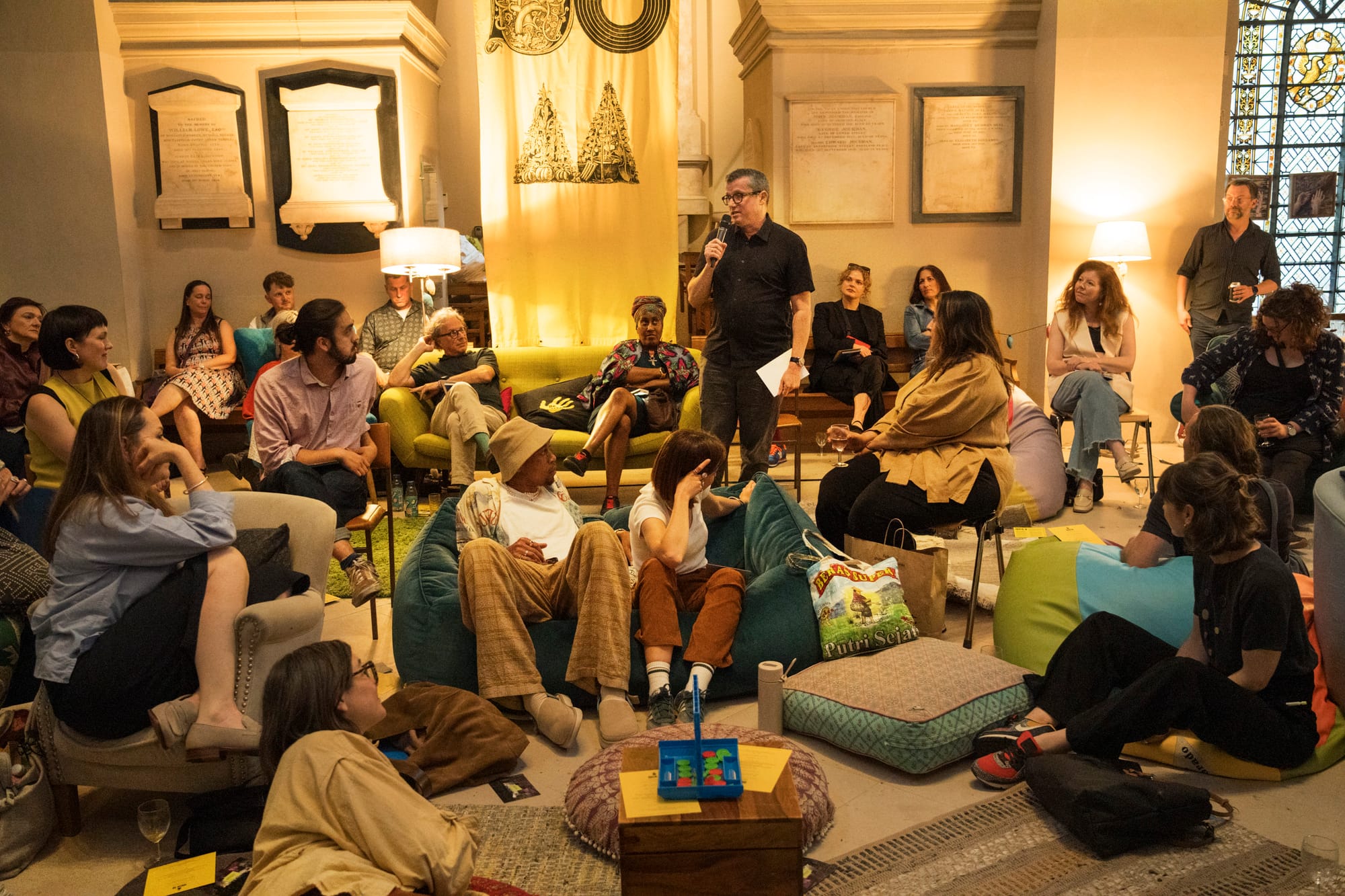
- finishing with the wonderful Juliet Stevenson from an armchair, talking about why speaking out has taught her the power of people bringing their voices together to make a greater whole.
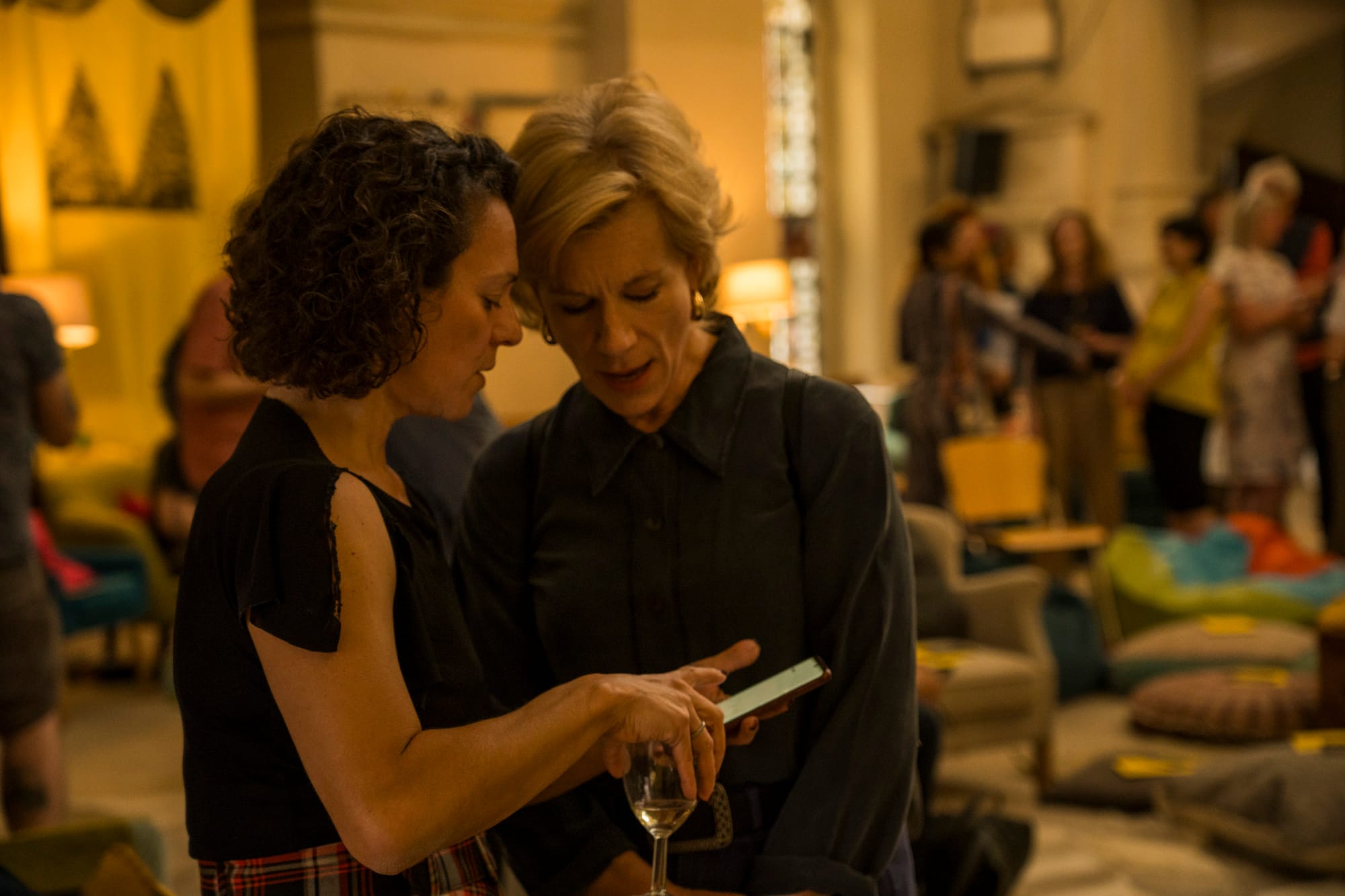
Dressing the space
Our good friends Camerados helped us do what they do best, turning the church into a cosy public living room where everyone felt welcome, filling the space with armchairs, sofas, rugs and fairy lights. The wonderful food was from 9Kitchens, on their mission to be London’s leading sustainable and socially-aware caterer. And our drinks sponsor was Crate, founders of the world’s first zero waste restaurant.
Our old pals Miles Glyn and Bridgett Turgoose, artist activist legends in their own right, made the banners that hung from the balconies with words ‘Love’, ‘Care’ and ‘Freedom’ on them, a nod to the late, great David Graeber who we’ve taken so much inspiration from.
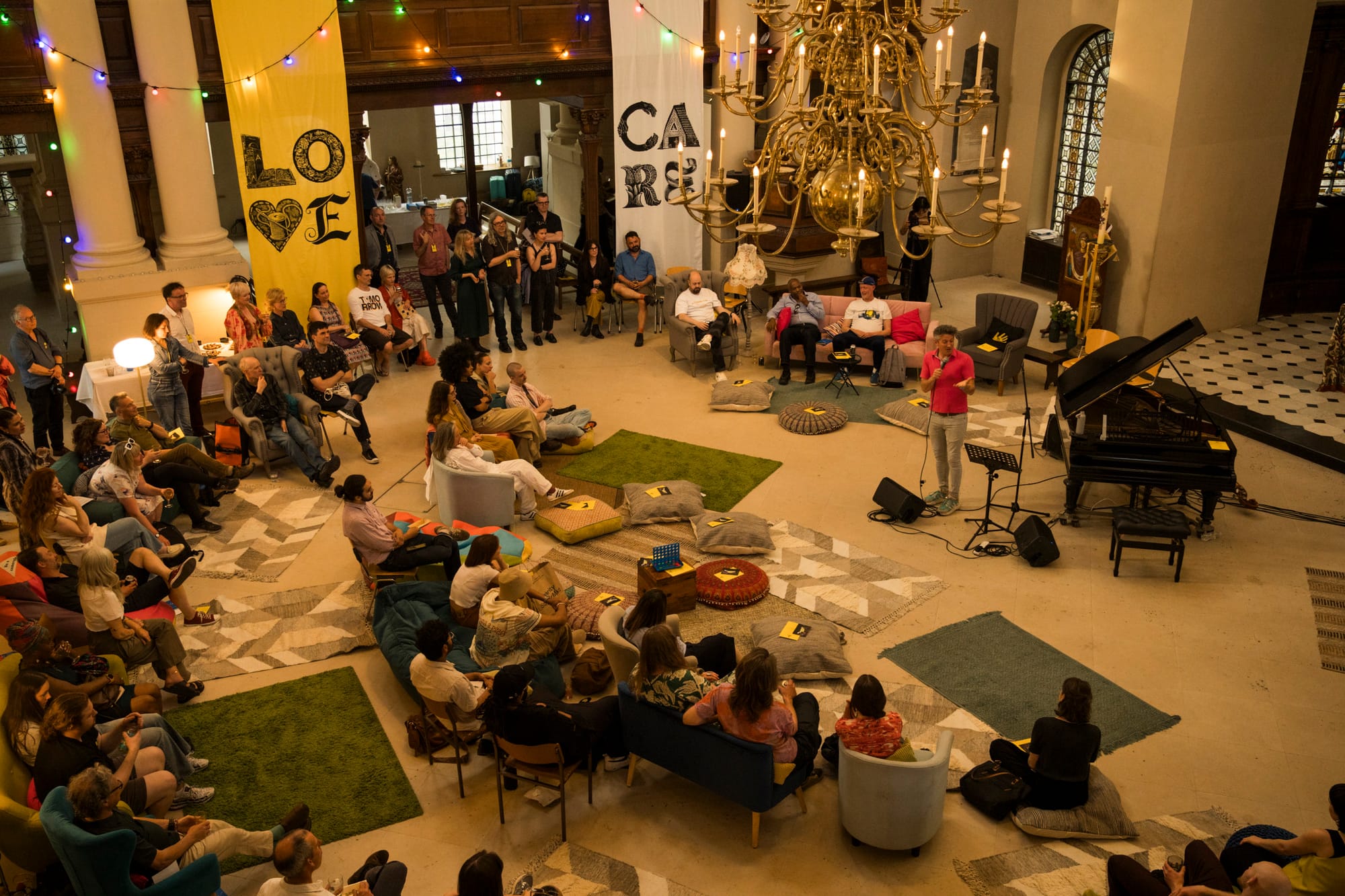
We wanted people to walk in and know they were in for a different kind of evening, but also that it wasn’t so ‘out-there’ that they couldn’t see themselves in it. With Maff and Drew from the Camerados team welcoming people with a set of light jazz piano and double bass on arrival, we were able to turn the venue into what someone described as feeling like a ‘warm hug’. They played I Wish I Knew How It Would Feel To Be Free.
Space for conversation
Of course, as with all events like this, it’s the conversations and offers of future support that happen between new friends and old that make the night special. To know that our community is growing, that more and more people are realising we’re all in this together and that ‘the network is the strategy’, gives me great hope for the future.
Ultimately, I looked around the room throughout the night at my crew of mischief-making collaborators at Absurd Intelligence dashing about and helping make the evening run smoothly so I didn’t have to, and felt incredibly lucky to be a part of such a mad bunch. Sometimes when you’re nervous and putting a new idea you’ve had out there for all to see it can feel isolating and like the weight of it all is on you alone. Thanks to my crew and many friends who always jump at the chance to chip in without asking for anything in return, I don’t have to feel that way.
We’re all crew
The end of the evening summed it up. Several people stayed behind to help us put the church back to how we found it, lugging sofas and cleaning glasses, making sure the incredibly heavy pews were all back where they needed to be. Some were people I’d never met before, some I knew well. Others were familiar faces I hadn’t seen for some time who never leave a protest without cleaning up after themselves, applying the collaborative solidarity of street protest to every effort, like a code between allies.
I hadn’t asked any of them to help, they just did. And that meant a hell of a lot. Because this is what it’s all about, isn’t it? The collaboration, the kindness, the working together to bring about the change we need, enacting what another good friend of ours, Brian Eno, calls ‘scenius’ - the intelligence of a whole community (or scene). Our wish – and our plan! – is for the wider world to be a little bit more like that evening.
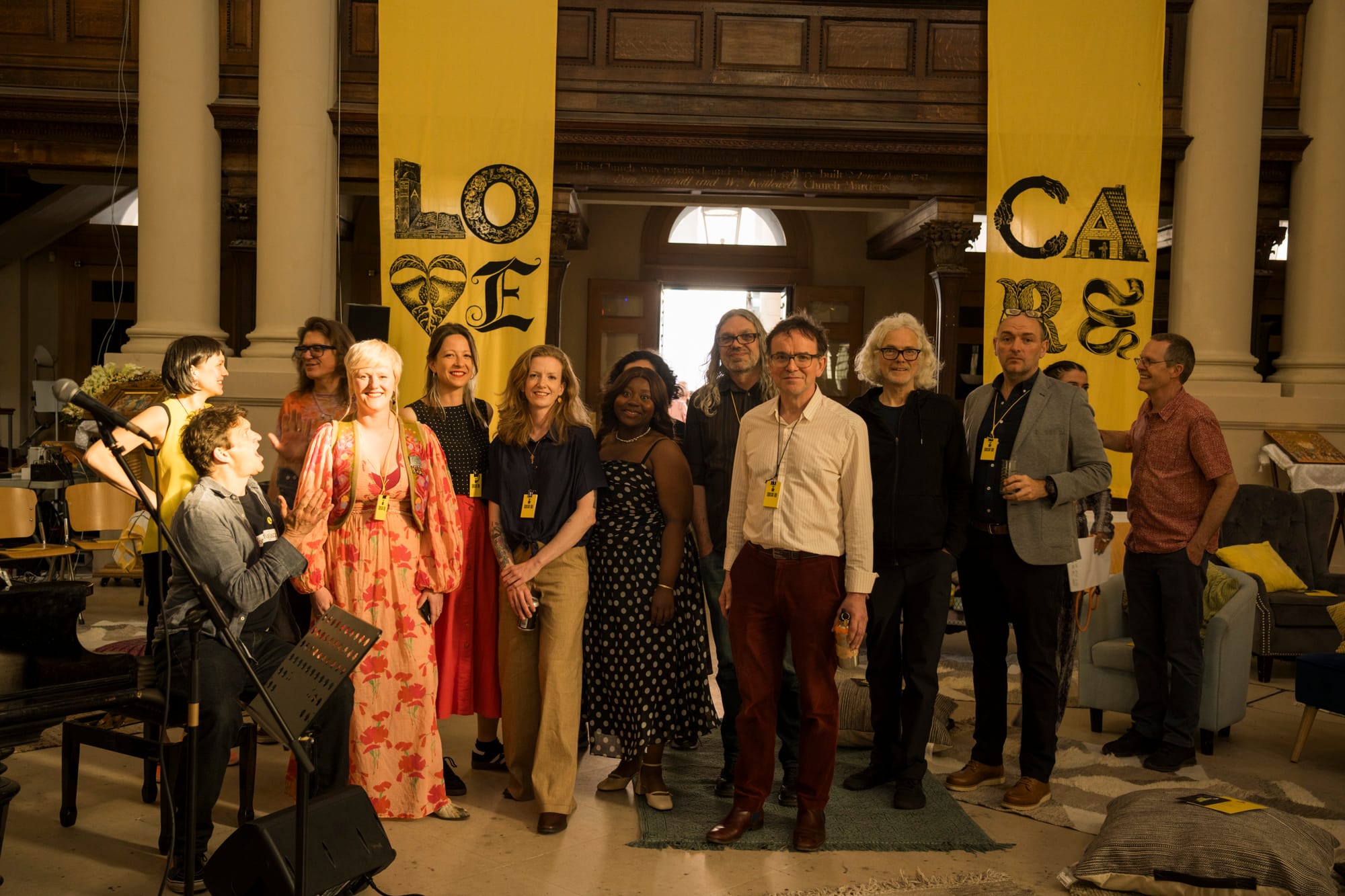
Elsewhere in Absurdity...
To be honest, last week and the bank holiday took it out of us. It was hundreds of hours of loving work to pull off the Speak Up launch! So this week looks a little quiet, although...
- Last Friday Clare and Charlie went on a site visit to Folkestone to meet Chloe Osborne (who also works at the fabulous Artcry) to plot, scheme and generally get up to lovely, brilliant mischief;
- On Tuesday the Absurd Intelligence crew went to Hard Art, for a lively, informative and imaginative session led by Katy Rubin on legislative theatre;
- And today (Friday) we’re off to borrow some space at our wonderful friend David Johnston’s agency Accept & Proceed, for a strategy day (for a glimpse into David’s work: if you’ve not read Hard Imagination yet, or know a Venture Capitalist or two to pass it along to, you must; or listen to his podcast Endless Vital Activity).

